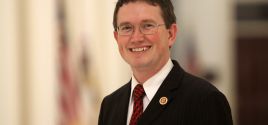British Spy Chief Calls For Crackdown On Internet FreedomSays 'plotters, proliferators and paedophiles' make surveillance-free internet a 'utopian dream'by Steve Watson Infowars Oct. 22, 2014 |
Popular 
ADL Urged Congress to Pass FISA Law Spying on Americans to 'Protect Israel'

Rep. Thomas Massie Warns Congress is Trying to Pass Hate Speech Laws to Outlaw Criticism of Israel

'Sniper Seen on Roof Overlooking Pro-Palestine Protest' at Indiana University

Mike Johnson Pushes Debunked Lie That Israeli Babies Were 'Cooked in Ovens' On October 7

Claim Jewish Student Was 'Stabbed In The Eye' by Pro-Palestine Protester Draws Mockery After Video Released
 The outgoing head of the GCHQ, the NSA’s UK equivalent, has slammed proponents of a free internet as ‘dreamers’, and defended those who spy on the communications of everyday people, saying they do “an extraordinary job.” In a farewell speech at the Churchill War Rooms in Whitehall, Sir Iain Lobban demanded that GCHQ needs the power to “access the Internet at scale” and “dissect it with surgical precision”. He said that the internet has become home to the “worst aspects of human nature,” and that spies need to be given unfettered power to govern the internet, to weed out “plotters, proliferators and paedophiles.” Lobban described the idea of the internet as a “totally ungoverned space” as a “flawed utopian dream,” and said that GCHQ employees have been “insulted time and again” by claims that they are implementing a mass surveillance police state. “You can't pick and choose the components of a global interception system that you like -- catching terrorists and paedophiles -- and those you don't -- incidental collection of data at scale: it's one integrated system.” Lobban argued, suggesting that spying on everyday citizens is a necessary factor of catching evildoers. "Unfortunately, there's no badguy.com" he added. “We need strong intelligence and cyber capabilities to identify them and, where international law enforcement doesn't work, to disrupt them directly. This combination is increasingly essential.” Lobban urged. “From what we know of ungoverned spaces in the real world, do we really believe that the world would be a better place if the Internet becomes an ungoverned space where anybody can act freely with impunity?” he stated. Last year whistleblower Edward Snowden revealed that GCHQ has for years been covertly gathering data from British telecommunication companies, without their consent or knowledge, using a hi-tech computer system code-named Tempora. Using Orwellian doublespeak, Lobban argued that by cracking down on internet freedom, GCHQ is protecting the freedom of citizens. “I want to make it absolutely clear that the core of my organisation's mission is the protection of liberty, not the erosion of it. And that presenting our activities as some sort of binary option -- security or privacy -- is to represent a false choice: we are committed to doing our utmost to deliver security at the same time as protecting privacy to the greatest extent possible.” the spy chief said. In reference to the operations of GCHQ and NSA, Lobban also argued that secrecy “does not have to equal sinister.” "For journalists, the public interest is served by publicity itself; for us, the public interest is served by some things remaining secret.” he said, adding that those working for the agencies are “normal decent human beings” who make “sacrifices” in their lives. “They have to look at some highly disturbing images of grotesque things being done to children, at graphic videos of beheadings. They examine such things carefully for clues to the perpetrators.” he said. “You can imagine the potential effect of looking at such images day-in, day-out, and so we have mechanisms to support people in these roles. I can assure you viewing of such material is not taken lightly. We do it because our job is to protect your loved ones.” "The people who work at GCHQ would sooner walk out the door than be involved in anything remotely resembling 'mass surveillance,'” Lobban concluded, claiming that only a “miniscule” percentage of global emails, texts and images are stored, viewed or listened to by GCHQ. The government spy agency has come under increased scrutiny in recent weeks following fresh efforts at the European court of human rights to investigate British laws that allow GCHQ and police to secretly snoop on journalists. The Bureau of Investigative Journalism is seeking a ruling that would describe domestic law as incompatible with provisions in European law which give journalists the right to keep sources confidential from police and others. Addressing GCHQ’s relationship with journalists, Lobban stated "We may get frustrated when our efforts are undone, our enemies advantaged, and our integrity questioned, but we're not frustrated by the free press itself. We do what we do precisely to safeguard the kind of society that has one." _ Steve Watson is a London based writer and editor for Alex Jones’ Infowars.com, and Prisonplanet.com. He has a Masters Degree in International Relations from the School of Politics at The University of Nottingham, and a Bachelor Of Arts Degree in Literature and Creative Writing from Nottingham Trent University. |



